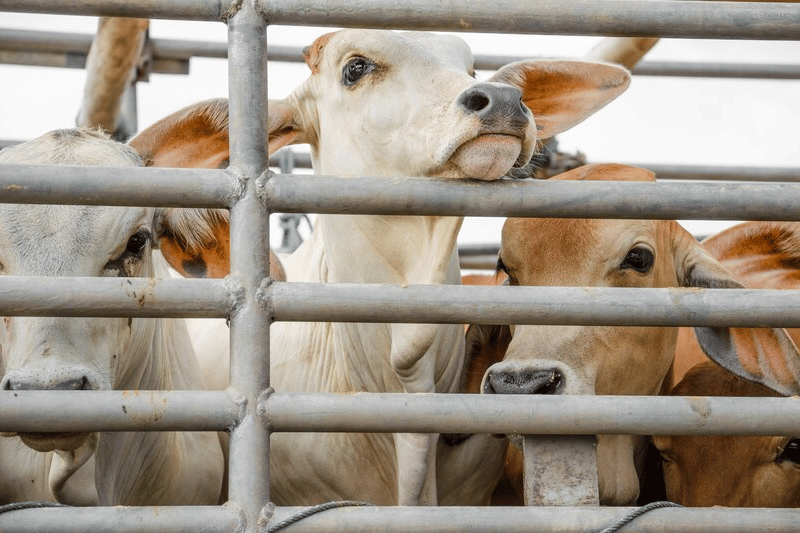According to a new analysis published by the Boston Consulting Group, the fight against climate change requires the widespread adoption of alternative protein sources, such as plant-based beef.
According to a new analysis published by the Boston Consulting Group, investments in plant-based meat lead to considerably bigger reductions in greenhouse gas (GHG) emissions than other climate expenditures such as green buildings and electric cars. These findings were found in the report. According to the findings of a report titled The Untapped Climate Opportunity in Alternative Proteins, investing one dollar in the development and expansion of alternatives to traditional sources of protein like meat and dairy could result in seven times as many reductions in emissions as environmentally friendly buildings and eleven times as many as zero-emission vehicles.
According to the findings of the analysis, the food system is responsible for 26% of the world’s total greenhouse gas emissions. Animal agriculture is the major contributor to greenhouse gas emissions within the food system. It is responsible for 15 percent of the world’s total emissions, which is almost the same amount as the emissions from the transportation sector. According to the most recent projections, the consumption of alternative proteins will account for 11 percent of total protein consumption by the year 2035. If alternative proteins receive additional support from technology, investors, and regulators, however, they may be able to command 22 percent of the global market during this timeframe.
According to the findings of the analysis, there will be a global reduction of 0.85 gigatons of CO2 equivalent by the year 2030 if we maintain our current trajectory of achieving an 11% share. This is similar to decarbonizing 95% of the aviation industry. The economic and individual consumer trade-offs involved in shifting away from animal-based proteins and toward more climate-friendly alternatives are relatively small when compared to those involved in other potential solutions, such as decreasing the amount of flying done or retrofitting existing housing stock.
According to the findings of the report, greenhouse gas emissions from livestock agriculture include a sizeable portion of methane—as much as fifty percent of the total. Furthermore, any significant shift in the overall diet of consumers toward the consumption of more alternative forms of protein will have an immediate cooling effect on the planet. Methane has a far larger capacity to contribute to global warming than CO2 does, and it also has a much shorter lifetime in the atmosphere. This means that lowering the quantities of methane in the atmosphere will also have a cooling effect.

Ben Morach, a managing director and partner at BCG, was quoted as saying in a statement that transitioning away from proteins derived from animals would result in supply chains that were shorter, more durable, and possibly even more local. “The widespread adoption of alternative proteins has the potential to eliminate the risk of supply chain disruptions and play a major role [in] fighting climate change. Consumers play a key part in playing an active role in accelerating this transformation,”
Alternative protein sources have a beneficial effect on the environment.
The report included the results of a survey in which over 3,700 people from seven different countries (the United Kingdom, the United States, China, France, Germany, Spain, and the United Arab Emirates) were asked about their motivations for trying alternative proteins and the factors that prevent them from purchasing more of these products. According to the findings of the study, thirty percent of consumers would switch to alternative protein products if they believed doing so would have a beneficial impact on the climate. This demonstrates that there is a definite need for more active positioning and consumer education. In addition, health was mentioned as the key motivation for consuming alternative proteins by three-quarters of those who participated in the survey. Roughly ninety percent of respondents indicated that they enjoyed at least some of the alternative protein products that they had tried. In addition, the findings of the poll indicated that enhancements in three major areas—health, taste, and price—are essential to increasing demand.
The report, which focused on the investment opportunities in alternative protein, highlights the fact that investments in this area will have a much greater impact than corresponding decarbonization investments in other high-emitting sectors such as transportation or buildings. The report also highlights the fact that investments in this area will have a much greater impact than investments in the alternative protein market. And when value pools grow around new technologies and processes in the food system that helps solve such crucial issues as health, flavor, and affordability, the demand for traditional food processing techniques like animal slaughtering and meat packaging will decrease. This indicates that every stakeholder along the value chain will feel the impact of the change, and a significant number of them will discover the significant potential in contributing to a more sustainable food system through the use of alternative proteins.
“The products that consumers are seeing on the shelves today will be followed by a wave of cleaner, healthier, and tastier alternative proteins,” Bjoern Witte, CEO of Blue Horizon, said in a statement. “As technology allows for increasing innovation, we will see a wave of cleaner, healthier, and tastier alternative proteins.” “We’ve seen the fast-paced growth of these technologies in our own portfolio as well as in the wider food-tech business, which has led to an overall improved consumer product variety.” This is very encouraging information for today’s consumers, but we are really just getting started here. Our examination of the climate data demonstrates that this action will have an obvious and positive effect on the natural world, which will be of enormous benefit to future generations.
Investing in the production of cultured meat
According to the findings of the report, efficient regulation is absolutely necessary to guarantee the market for alternative proteins will continue to expand. Over the past few years, there has been an increase in the rate at which regulatory permission is being granted for goods that are based on fermentation or animal cells all over the world. Israel took the initiative in 2015 by stating that its innovative framework for regulating the safety of food would be extended to include alternative proteins.
Eat Just, a food technology startup based in California, was able to include its cell-based chicken as an ingredient in chicken bites that were part of a small commercial launch for Eat Just’s new brand GOOD Meat. In the year 2020, Singapore became the first country in the world to approve the sale of cell-based meat. This allowed Eat Just to become the first company in the world to sell its cell-based chicken.
In addition, China acknowledged the need to “expand beyond traditional crops, livestock, and poultry to more abundant biological resources” in its most recent five-year plan, which was published in January 2022. As a part of China’s food security strategy, animal-cell-based meat and other alternative proteins were included in this plan.








